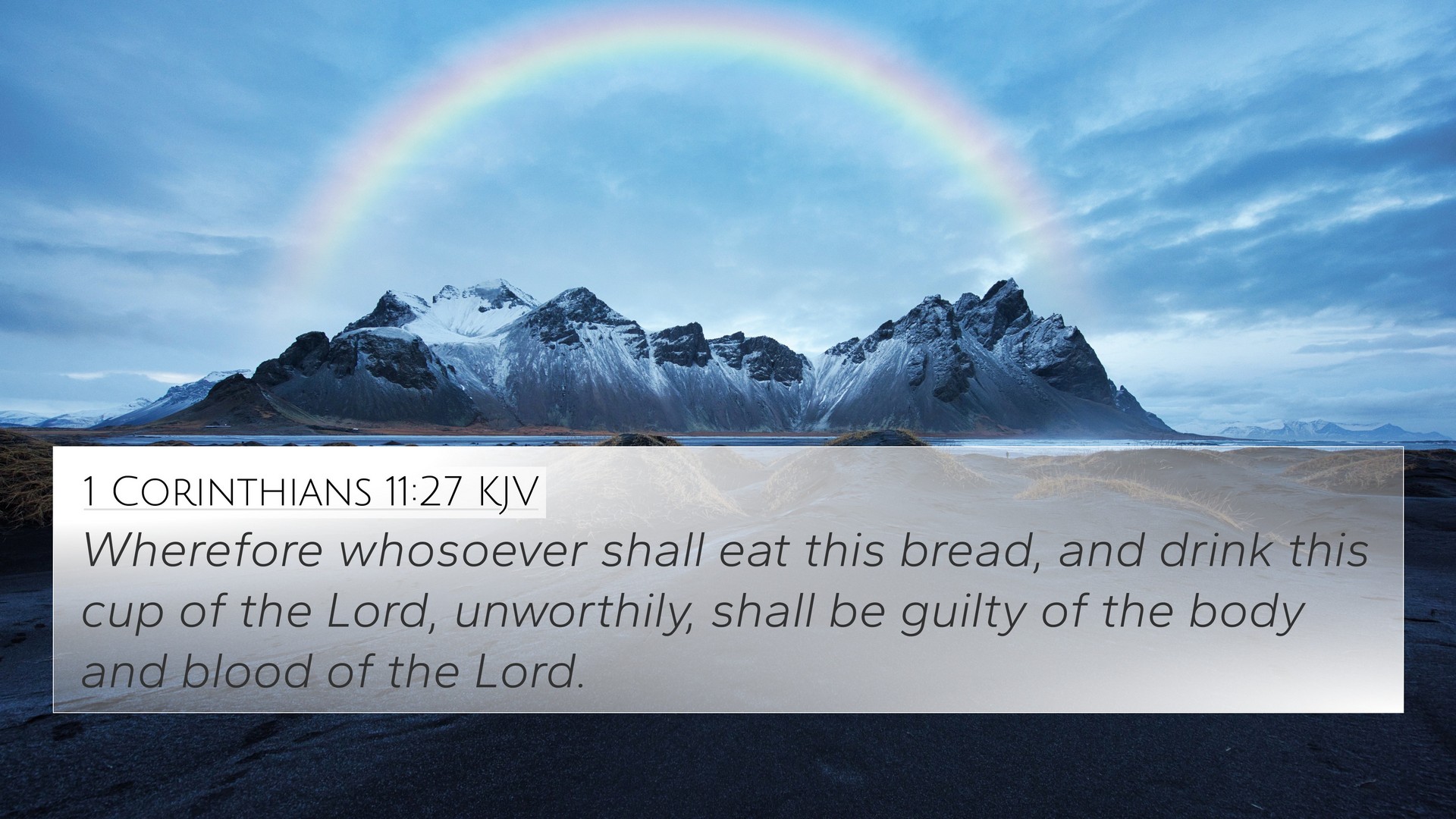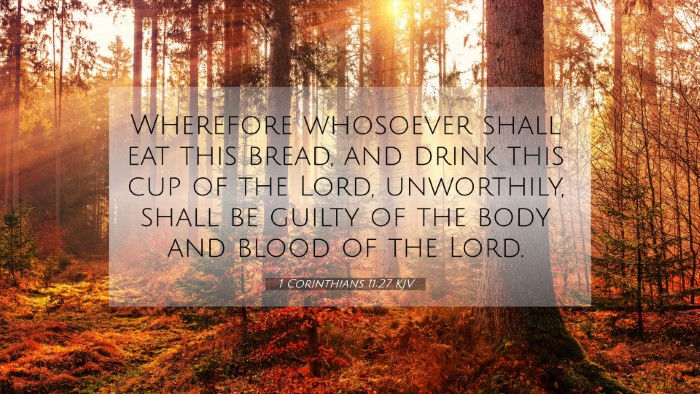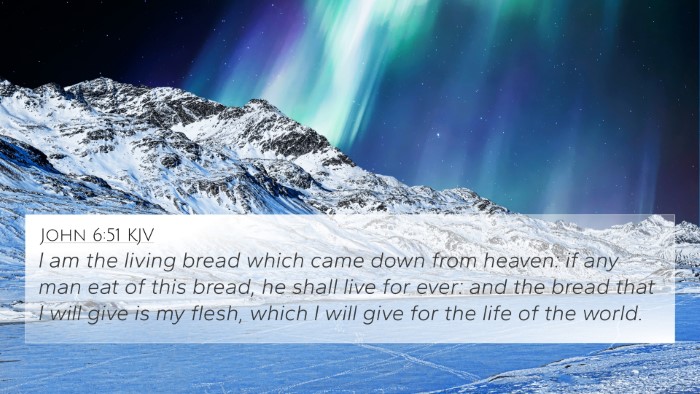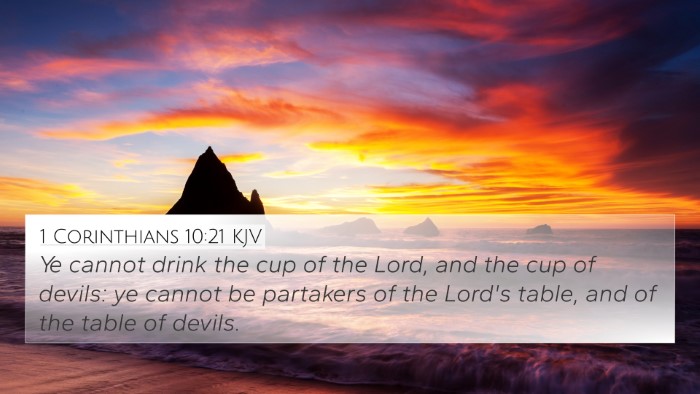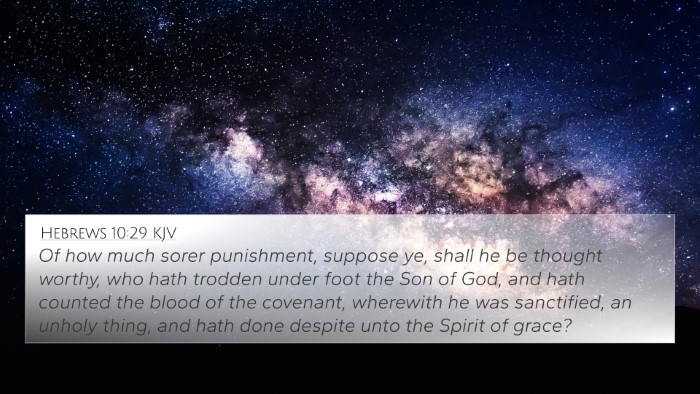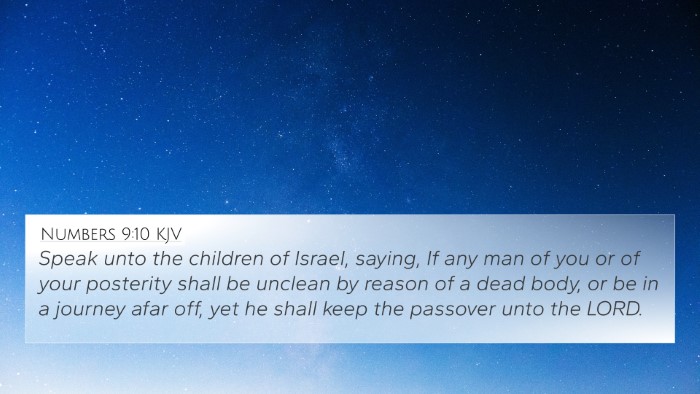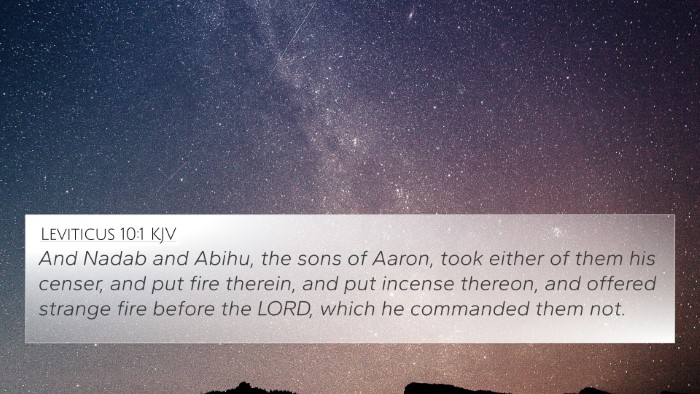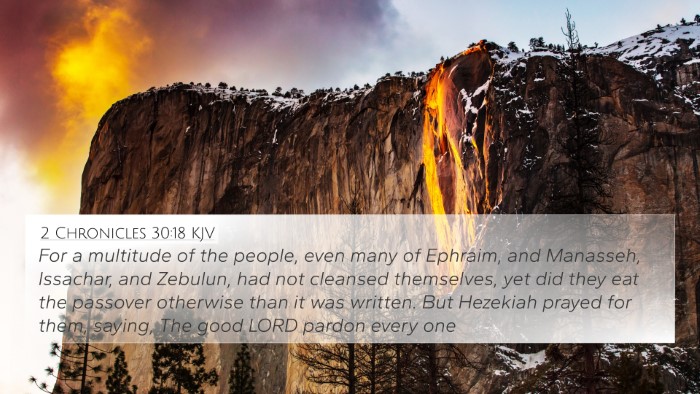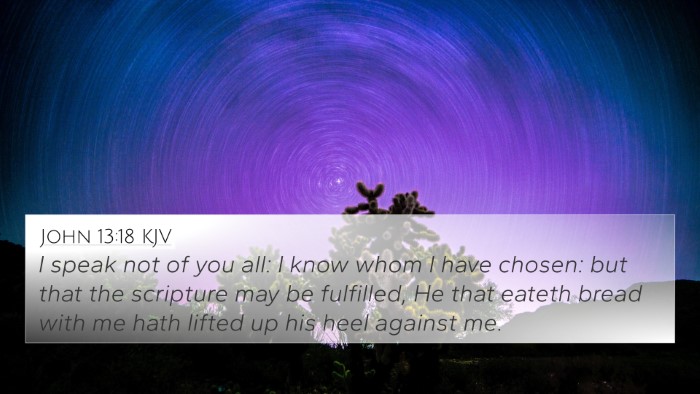Meaning and Interpretation of 1 Corinthians 11:27
Verse: "Therefore whoever eats the bread or drinks the cup of the Lord in an unworthy manner will be guilty of sinning against the body and blood of the Lord." (1 Corinthians 11:27, NIV)
Summary of the Verse
This verse serves as a grave warning concerning the manner in which Christians should partake of the Lord's Supper. It highlights the seriousness of approaching this sacrament without proper reverence and understanding, indicating that such actions result in guilt towards the body and blood of Christ.
Detailed Exegesis
In this context, the Apostle Paul addresses the Corinthian church regarding the conduct and attitudes displayed during the communal meal known as the Lord's Supper. He emphasizes that the manner of participation is crucial and directly influences one’s relationship with Christ and the church as a whole.
Insights from Public Domain Commentaries
Matthew Henry's Commentary
Henry emphasizes that to "eat unworthily" refers to partaking without discernment of the significance of the elements, perhaps leading to a state of unrepentant sin. He notes that this warning serves as a call to self-examination, urging believers to reflect on their hearts and lives before engaging in this sacred act.
Albert Barnes' Notes
Barnes points out the serious nature of guilt incurred by partaking in a disrespectful manner. It not only disrespects the physical elements of the Supper but inherently violates the sanctity of Christ’s sacrifice. He underscores the importance of examining oneself and understanding the commitment and covenant represented in the bread and the cup.
Adam Clarke's Commentary
Clarke elaborates on the concept of "unworthy manner," suggesting that it includes acknowledging the sacrifice without genuine repentance or acceptance of Christ. He views the Lord's Supper as both a privilege and a responsibility that requires a heart attuned to the gravity of communion with Christ and fellow believers.
Cross-References for Deeper Study
- Matthew 26:26-28: The account of the institution of the Lord's Supper, detailing the significance of the bread and the cup.
- John 6:53-57: Jesus’ teaching on the necessity of eating His flesh and drinking His blood for eternal life.
- 1 Corinthians 11:28: Directly follows, urging individuals to examine themselves before partaking.
- Hebrews 10:29: Discusses the consequences of treating the covenant blood of Christ lightly.
- 1 John 1:9: The assurance of forgiveness for those who confess their sins, relevant for the self-examination process.
- Luke 22:19-20: Luke’s account of the Last Supper, emphasizing remembrance.
- Romans 14:23: Discussing the necessity of faith in one's actions concerning food and drink.
- Matthew 5:23-24: The call to reconciliation before offering gifts at the altar, paralleling the need for purity in communion.
- Philippians 2:1-2: Encouragement towards unity among believers, which is foundational for partaking worthily.
- Acts 2:42: The early church's practice of breaking bread together, underscoring community and common bond.
Thematic Connections
The themes explored in 1 Corinthians 11:27 resonate deeply throughout the New Testament and can be cross-referenced with various scriptures for a holistic understanding:
- Communion and Covenant: The relationship between participation in the Lord's Supper and the covenant theme found in both Old and New Testaments.
- Repentance: The necessity for confession before God as stressed in both the Pauline letters and the Gospels.
- Community and Unity: The emphasis on a shared faith and the communal aspect of breaking bread, which should not be taken lightly.
- Sacrifice: Understanding the significance of Christ’s sacrifice in the context of the Passover and the Lord's Supper.
- Self-examination: A recurring theme throughout Scripture, urging believers to reflect on their actions and relationship with God.
Conclusion
1 Corinthians 11:27 serves as a powerful reminder of the reverence due to the sacrament of the Lord's Supper. By incorporating insights from various commentaries and cross-referencing significant biblical texts, believers can gain a rich understanding of this critical aspect of Christian practice. Through engaging in self-examination, understanding the surrounding themes, and recognizing the historical context, one can approach this holy observance with the solemnity it deserves.
